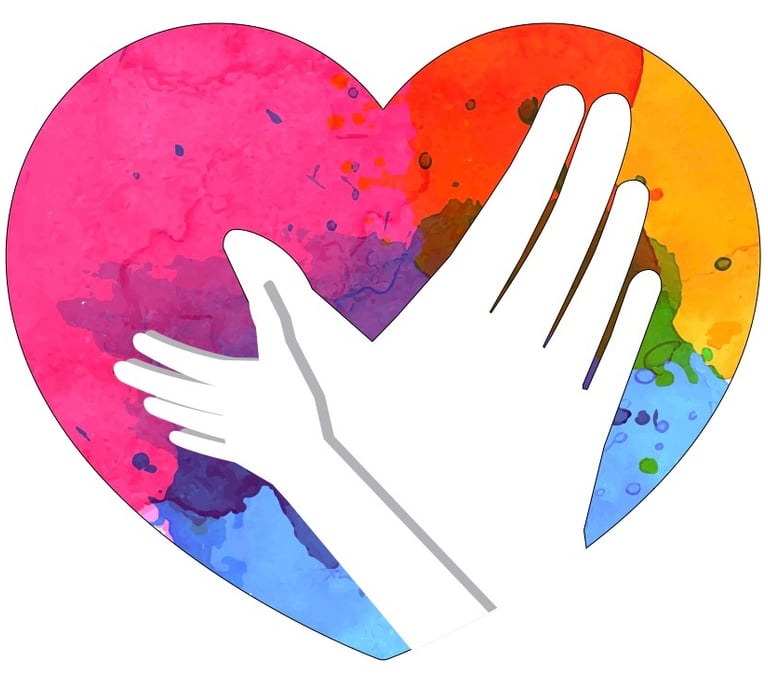Music and ADHD: A Powerful Tool for Focus and Well-Being
Did you know that listening to music can be a powerful tool for individuals with ADHD? Beyond being a pastime, music activates areas of the brain linked to motivation and attention, boosts mood, and helps reduce stress. Genres like binaural beats, rock, classical music, and lo-fi have been proven particularly effective in improving focus and regulating emotions.


Listening to music isn’t just an enjoyable pastime—it can be a therapeutic tool for those with Attention Deficit Hyperactivity Disorder (ADHD). Recent studies show that music helps improve focus, reduces stress, and promotes happiness. But how does it work, and which types of music are most suitable for ADHD?
How Does Music Help People with ADHD?
1. Boosting Dopamine
ADHD is associated with lower levels of dopamine, a neurotransmitter linked to motivation and reward. Listening to music activates the nucleus accumbens, the brain’s control center for motivation and action, mimicking the effects of ADHD medication.
2. Regulating Emotions
Music with a steady rhythm can have a calming effect, creating a sense of stability and security. Additionally, studies show that music reduces sadness and hopelessness, helping people regulate their emotions and lower stress levels.
3. Enhancing Attention
The theory of selective attention suggests that music helps the brain focus on relevant stimuli and minimize distractions. For people with ADHD, this means music can redirect attention from irrelevant stimuli to important tasks.
Recommended Types of Music for ADHD
1. Binaural Beats
This type of music stimulates both hemispheres of the brain to work together. Alpha frequencies (8 to 13 Hz) are particularly effective for improving focus. Look for playlists under “binaural beats for ADHD.”
2. Classical Music
Classical compositions, particularly those by Mozart, enhance cognitive performance and help maintain focus by inducing an alert state in the brain.
3. Rock Music
Though unconventional, rock music has been shown to help people with ADHD complete tasks and reduce hyperactivity. Its repetitive rhythms alleviate muscle tension often associated with ADHD.
4. Lo-Fi Music
This genre, with its predictable and steady rhythms, reduces external distractions and improves memory. Its sound, similar to white noise, is perfect for studying or working.
How to Choose the Right Music?
Choosing music for ADHD depends on individual preferences. For some, music with lyrics may be distracting, while for others, familiar songs can be comforting and enhance focus. Experiment with different genres such as pop, hip-hop, or smooth jazz to find what works best for you.
Music Therapy for ADHD and Autism
Music therapy has proven effective not only for individuals with ADHD but also for children with autism. These therapies focus on structured musical activities to achieve specific goals related to emotional regulation, social skills development, and improved attention.
For children with ADHD, music therapy helps channel energy, improve coordination, and boost focus. Incorporating repetitive rhythms or structured musical activities provides a predictable framework that reduces impulsivity.
In the case of autism, music serves as a bridge for communication. Many children with autism find music to be a form of self-expression when words fall short. Music therapy often includes activities like singing, playing instruments, or moving to music, fostering social interaction and emotional connection. These sessions can also be tailored to address specific needs such as developing eye contact, following instructions, or improving sensory sensitivities.
Additional Benefits of Music
• Emotional Well-Being: Music regulates stress hormones and promotes a greater sense of happiness.
• Scientific Backing: Research shows that music minimizes distractions, helping individuals with ADHD focus better on important tasks.
Conclusion
Music can be a powerful tool for individuals with ADHD, helping them improve focus, regulate emotions, and enhance overall well-being. However, there’s no one-size-fits-all solution, and exploring different types of music is key to finding what works best.
If you’re seeking additional support to manage ADHD, autism, or other behavioral challenges, Little Smile Behavioral is here to help. Our specialists work with you and your family to create effective strategies. Contact us today and take the first step toward a more balanced life! 💙
Get in touch


